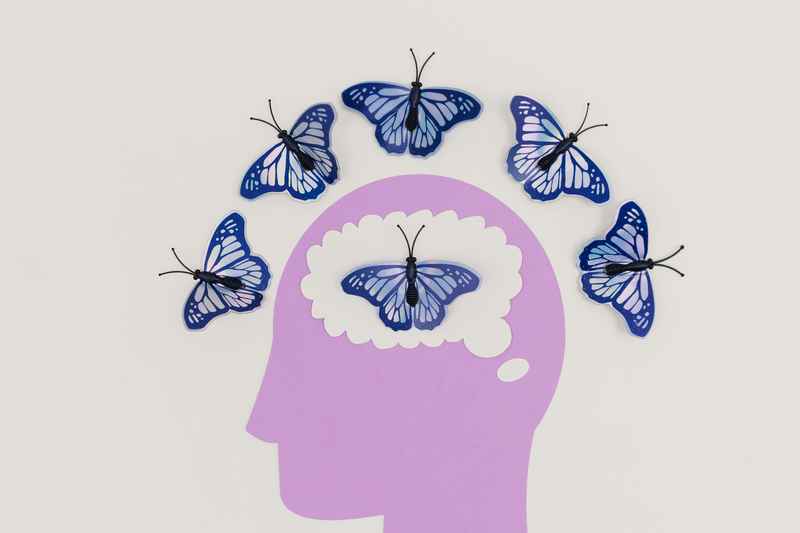How to Stop Emotional Overwhelm and Build Resilience

Have you ever felt like life just keeps throwing curveballs your way, leaving you overwhelmed or stuck in frustration? Maybe it’s a work deadline that spiraled out of control, a conflict with a loved one that left you drained, or even just the weight of daily responsibilities piling up. We’ve all been there. But what separates those who thrive from those who feel defeated? It’s emotional resilience—a skill anyone can develop.
Challenges as Stepping Stones
Life is unpredictable. No matter how carefully you plan, challenges will arise. What’s fascinating is how the same obstacle can either hold someone back or propel them forward. The difference lies in perspective. Emotional resilience transforms challenges into stepping stones, giving you the ability to “shake them off” and take meaningful steps forward.
Think about someone who loses their job unexpectedly. While one person might spiral into fear and self-doubt, another might see it as a chance to pivot into something more fulfilling. It’s not the event itself, but how they approach the discomfort that defines their trajectory. Challenges aren’t just roadblocks; they’re invitations to adapt, learn, and ultimately grow stronger.
Emotional Resilience is a Trainable Skill
It’s tempting to think some people are just “naturally resilient.” You might look at someone navigating a tough situation with grace and wonder how they make it seem so effortless. Here’s the truth: resilience isn’t a gift—it’s a skill. And like any skill, it can be cultivated.
Over time, intentional practices, supportive environments, and meaningful experiences help shape emotional strength. Resilience is built through small, consistent moments of choosing growth over avoidance, strength over defeat.
The good news? If resilience is learned, it’s accessible to anyone willing to practice.
The Role of Emotional Awareness
Here’s a question: how often do you pause to truly notice your emotions? Many of us move through life reacting impulsively, unaware of the undercurrent of feelings driving our decisions. Emotional awareness—being able to identify and understand your emotional states—is the foundation of resilience.
When you’re aware, you gain choice. Instead of acting out of anger, fear, or insecurity, you can pause and align your actions with what truly matters to you. It’s not about suppressing emotions but about learning to channel them effectively.
This self-awareness also creates space for empathy—toward yourself and others. Instead of being trapped in reaction, you learn to respond with intention.
Building Strength Through Discomfort
Emotional resilience doesn’t mean avoiding discomfort; it means managing it. Life isn’t about eliminating challenges—it’s about learning to navigate them without letting them derail your entire day, week, or year.
Discomfort is like a workout for your emotional muscles. Every time you choose to stay grounded instead of giving in to emotional overwhelm, you’re strengthening your ability to handle life’s curveballs. It’s this strength that allows you to keep moving forward, even when things feel tough.
The Power of Choice
At its core, resilience is about choice. It’s the ability to choose how you respond to what life throws at you. It’s choosing to shift from anger to understanding, from doubt to confidence, from despair to hope.
Over time, these choices become habits. Just as anxiety or fear might be your default today, with practice, joy, inspiration, and confidence can become your go-to emotional states. Resilience gives you the freedom to align your emotions and actions with the person you want to be—not the person circumstances try to shape you into.

Nervous System Mastery and Emotional Reflexes
Have you ever noticed how some people seem unshakable even in high-stress situations? A big part of that lies in their ability to regulate their nervous system. Through practices like focused breathing or visualization, they’ve trained their bodies to remain calm even when emotions run high.
This isn’t just about stress management—it’s about rewiring your emotional reflexes. Over time, you can train yourself to respond to challenges with calm, clarity, and even creativity. It’s not that the stress goes away; it’s that you’ve learned to work with it rather than against it.
Ongoing Development
Resilience isn’t something you achieve once and then check off your list. It’s an ongoing process, a continual deepening of emotional awareness, regulation, and alignment. Every new challenge becomes an opportunity to strengthen this skill, to stretch your emotional capacity further.
The result? Greater adaptability, fulfillment, and the ability to show up as your best self—even in the face of life’s unpredictability.
What’s Possible With Emotional Resilience
Emotional resilience is a superpower, but it’s not out of reach for anyone. It’s about choosing growth over fear, awareness over autopilot, and alignment over reaction. Life will always have its ups and downs, but with resilience, you can navigate them with a sense of strength and purpose.
If this resonates with you, there’s a process I’ve created that’s specifically designed to help you cultivate these skills and deepen your emotional resilience. It’s part of a program that offers tools for lasting transformation and inner strength. You can learn more about it by exploring the Inner Foundation Series.
